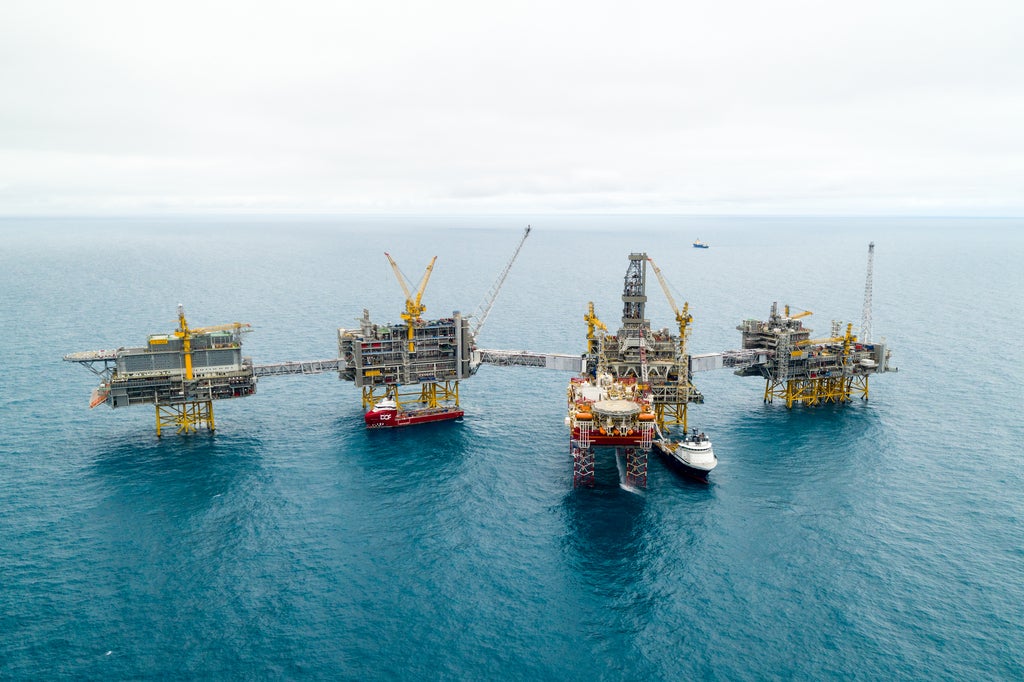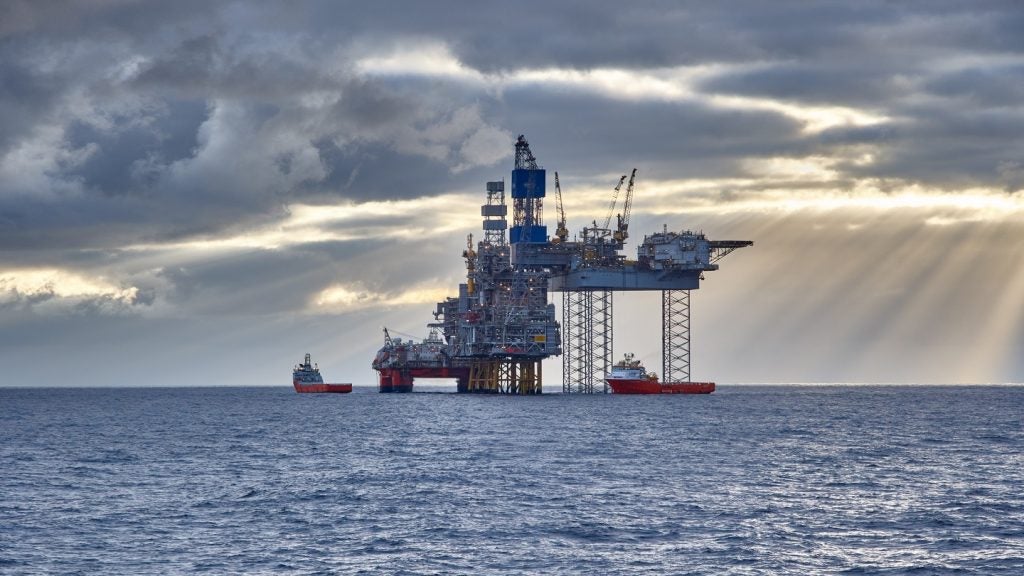
CNOOC plans to increase its 2020 capex to $13.79bn
China’s state-owned offshore oil and gas major CNOOC announced plans to increase its 2020 capital expenditure (capex) from CNY85 billion to CNY95 billion ($12.34 billion to $13.7 billion).
The announcement comes as part of the company’s business strategy and development plan for the year 2020. It plans to focus on domestic drilling.
The company is targeting a net production of 520-530 million barrels of oil equivalent (Mboe).
Upper House of Somalian Parliament approves new petroleum law
The Upper House of the Somalian Parliament approved a new petroleum law which it expects to attract investments from big oil companies.
The Lower House of the parliament approved the law last year.
This is a revised version of a 2008 regulation. It seeks to provide a regulatory framework for the petroleum industry and to help bring investment into the country.
How well do you really know your competitors?
Access the most comprehensive Company Profiles on the market, powered by GlobalData. Save hours of research. Gain competitive edge.

Thank you!
Your download email will arrive shortly
Not ready to buy yet? Download a free sample
We are confident about the unique quality of our Company Profiles. However, we want you to make the most beneficial decision for your business, so we offer a free sample that you can download by submitting the below form
By GlobalDataEquinor aims near-zero greenhouse gas emissions in Norway by 2050
Norwegian oil producer Equinor announced plans to cut greenhouse gas emissions generated at offshore fields and onshore plants in Norway.
The company aims to reduce emissions by about 40% by 2030, 70% by 2040 and to near-zero by 2050.
To aid them with these new environmental goals, Equinor is seeking opportunities within offshore wind, carbon capture and storage, as well as green hydrogen.
Norway issues 69 offshore exploration licences
Norway’s Ministry of Petroleum and Energy issued licences and operatorships to companies drilling in the Norwegian shelf.
The new licences, known as Award in Pre-Defined Areas 2019 (APA 2019), cover production across 69 different areas in the North Sea, the Norwegian Sea and the Barents Sea.
Production licences were split between 28 oil companies, with 19 also being given operatorships. Equinor, one of Norway’s largest operators, was awarded the largest number of licences across 23 areas, with 14 operatorships.
Valaris and Saudi Aramco JV orders newbuild jack-up rigs
ARO Drilling, a 50:50 joint venture (JV) between offshore drilling contractor Valaris and state-owned oil firm Saudi Aramco, ordered two newbuild jackup rigs.
The JV placed the order with International Maritime Industries (IMI).
According to Valaris, each new build costs approximately $175m. They agreed to construct to the specifications laid out by Saudi Aramco.
Lundin Petroleum to become carbon neutral by 2030
Swedish oil and gas firm Lundin Petroleum launched its decarbonisation strategy, a roadmap to becoming carbon neutral by 2030.
This move seeks to improve energy efficiency by cutting emissions from operations and developing carbon capture mechanisms.
Lundin also plans to invest in renewable energy projects as a means to replace its own net electricity consumption. This assumes the projects generate a good return for its shareholders.
Qatar turns down LNG pricing renegotiations with India
India’s oil minister Dharmendra Pradhan met with industry officials, including Qatar energy minister Saad Sherida Al-Kaabi to discuss lowering the price of Liquefied Natural Gas (LNG). Qatar, India’s long-term LNG supplier, however, refused to renegotiate its contract with India.
India signed a long-term LNG deal with Qatar in 1999 which was renegotiated in 2015, leading to an extra one million tonnes per annum (mtpa) of LNG from Qatar and a 50% price cut for India. The country imports 8.5mtpa of LNG from Qatar which comes to $9-10 million British thermal units (MBtu), double the rate of LNG provided on the spot market.
According to Press Trust of India, Pradhan said: “All energy producers have to revisit this old practice and come to the new methodology of pricing, keeping demand and supply in mind. We need to re-examine the pricing mechanism.” He added that the long-term market is facing challenges due to users’ preference to buy gas from the spot market for less money.
Aquaterra Energy and Oceaneering partner on decommissioning
Oil and gas industry equipment provider Aquaterra Energy signed a Memorandum of Understanding (MoU) with service provider Oceaneering International Services to collaborate on decommissioning wells and to offer late-life solution packages to the North Sea oil and gas industry.
The companies offer tools and services in platform well abandonment, subsea well abandonment, topside and jacket removals, and subsea removals. The companies aim to offer their specialist equipment and expertise to deliver successful decommissioning solutions.
Aquaterra Energy contributes its expertise on engineering and project management and its equipment inventory, and Oceaneering brings tools and services in cutting, severance, and dredging. They are using Aquaterra Energy’s facilities in Great Yarmouth to initially focus on the southern North Sea.
MODEC and SIA win contracts for Equinor’s oil field offshore Brazil
MODEC and Subsea Integration Alliance (SIA) secured contracts from Equinor to provide front-end engineering design (FEED) services for its Bacalhau (formerly Carcará) project offshore Brazil.
SIA is a partnership between Subsea 7 and Schlumberger’s OneSubsea.
The contracts are for the first phase of the Bacalhau field. The field is 185km from the coast of Ilhabela / SP, São Paulo, at a depth of 2,050m.
OGUK sets out plans to decarbonise the UK oil and gas industry
Leading representative body for the UK offshore oil and gas industry, Oil and Gas UK (OGUK), yesterday outlined its plans to decarbonise the industry in response to the UK and Scottish government’s net-zero emissions goals.
In a keynote speech delivered to politicians, policymakers and campaign groups in Edinburgh, OGUK chief executive Deirdre Michie, OBE, introduced Roadmap 2035: an industrial response to the UK and Scottish Governments’ net-zero commitments. Michie said that the Roadmap “aims to enable a safe, sustainable and competitive oil and gas industry, supporting the UK’s energy needs and its transition to a net-zero future. These aspects are not mutually exclusive but inextricably linked.
“Stepping up to reduce carbon emissions to net-zero by 2050 in the UK and by 2045 in Scotland is also an opportunity for the UK’s oil and gas industry to shine in a competitive global market: Sustaining jobs, contributing to public services through taxation, providing secure energy supply and diversifying as we help to find solutions.”





